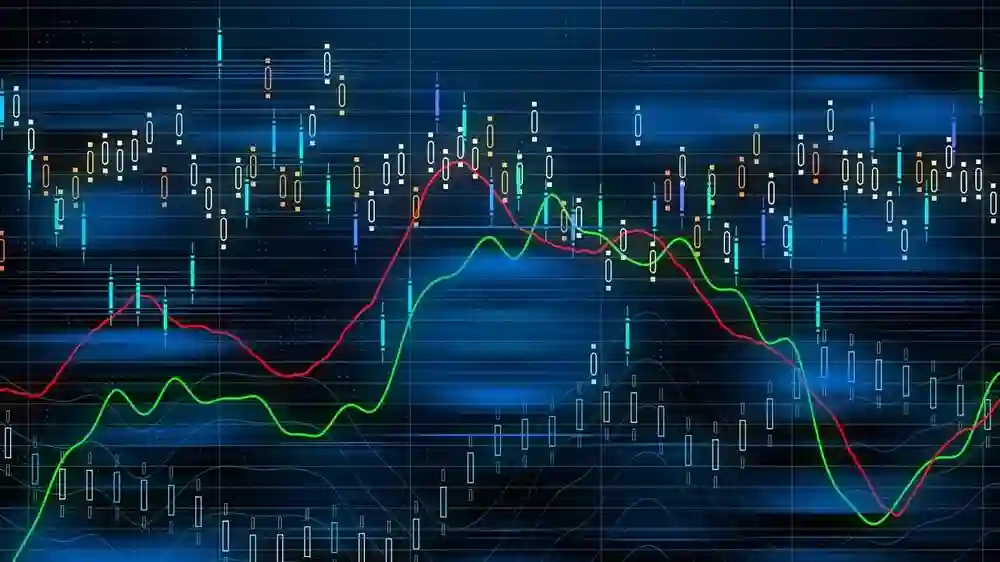The integration of artificial intelligence (AI) technologies into forex trading has ushered in a new era of innovation, transforming market analysis, trading strategies, and decision-making processes. This article explores the intersection of forex trading and artificial intelligence, examining the role of AI in enhancing market efficiency, predicting price movements, automating trading processes, and managing risk. By delving into the applications, benefits, and challenges of AI in forex trading, this article sheds light on the profound impact of AI on the dynamics of the forex market and the future of trading.
The forex market, with its vast size, liquidity, and complexity, presents both opportunities and challenges for traders seeking to profit from currency fluctuations. In recent years, the advent of artificial intelligence (AI) technologies has revolutionized the way traders analyze market data, develop trading strategies, and execute trades in the forex market. AI algorithms, powered by machine learning, natural language processing, and data analytics, offer traders unprecedented insights into market trends, patterns, and behaviors, enabling more informed decision-making and predictive capabilities. This article explores the intersection of forex trading and artificial intelligence, highlighting the transformative impact of AI on the forex market and the evolution of trading practices.
The Role of Artificial Intelligence in Forex Trading:
Market Analysis: Forex robot AI technologies play a crucial role in analyzing vast amounts of market data, including price movements, economic indicators, news sentiment, and social media feeds, to identify patterns, trends, and correlations. By leveraging machine learning algorithms, AI can extract valuable insights from complex datasets, providing traders with a comprehensive understanding of market dynamics and potential trading opportunities.
Predictive Modeling: AI enables traders to develop predictive models that forecast future price movements and trends with greater accuracy and reliability. Machine learning algorithms can learn from historical data and adapt to changing market conditions, enabling traders to anticipate market shifts and make proactive trading decisions based on predictive analytics.
Automated Trading: AI-powered trading systems, such as expert advisors (EAs) and algorithmic trading strategies, automate the execution of trades based on predefined criteria and algorithms. By employing machine learning algorithms to analyze market data and generate trading signals, automated trading systems can execute trades swiftly and efficiently, without emotional biases or human errors.
Risk Management: AI technologies enhance risk management in forex trading by assessing and mitigating potential risks associated with market volatility, position sizing, and portfolio allocation. Machine learning algorithms can analyze risk factors and historical data to optimize risk-adjusted returns, implement stop-loss orders, and dynamically adjust trading parameters to minimize downside risk and preserve capital.
Applications of Artificial Intelligence in Forex Trading:
Sentiment Analysis: AI algorithms analyze news articles, social media feeds, and market sentiment indicators to gauge investor sentiment and assess its impact on currency prices. Sentiment analysis enables traders to identify market trends and sentiment shifts, allowing them to make informed trading decisions based on market sentiment analysis.
Pattern Recognition: AI algorithms detect recurring patterns and trends in market data, such as chart patterns, candlestick formations, and price trends, to identify potential trading opportunities and patterns. Pattern recognition algorithms enable traders to spot emerging trends and patterns, facilitating timely and accurate trading decisions.
Natural Language Processing: AI technologies process and analyze text data from news articles, economic reports, and central bank statements using natural language processing (NLP) algorithms. NLP algorithms extract key insights and sentiments from textual data, enabling traders to interpret news events and fundamental factors that impact currency prices.
Deep Learning: Deep learning algorithms, a subset of machine learning, analyze complex data structures and relationships to uncover hidden patterns and insights. Deep learning techniques, such as neural networks, convolutional neural networks (CNNs), and recurrent neural networks (RNNs), enable traders to develop sophisticated trading models and predictive analytics tools that leverage the power of deep learning algorithms.
Benefits of Artificial Intelligence in Forex Trading:
Enhanced Efficiency: AI technologies streamline market analysis, trading strategies, and decision-making processes, enhancing efficiency and productivity in forex trading. Automated trading systems execute trades swiftly and efficiently, enabling traders to capitalize on market opportunities in real-time.
Improved Accuracy: AI algorithms analyze vast amounts of market data with precision and accuracy, enabling traders to make data-driven decisions based on reliable insights and predictive analytics. AI-powered trading models and algorithms enhance the accuracy of market predictions and trading signals, reducing the risk of errors and false signals.
Adaptive Learning: AI technologies adapt to changing market conditions and learn from experience, continuously improving their performance and predictive capabilities over time. Machine learning algorithms analyze historical data and adjust trading strategies dynamically, enabling traders to adapt to evolving market trends and conditions.
Risk Mitigation: AI-powered risk management systems assess and mitigate potential risks associated with market volatility, position sizing, and portfolio allocation. AI algorithms analyze risk factors and optimize risk-adjusted returns, enabling traders to minimize downside risk and preserve capital in volatile market conditions.
Challenges and Considerations:
Data Quality and Quantity: AI algorithms require high-quality and large volumes of data to train and optimize trading models effectively. Traders must ensure access to reliable and comprehensive datasets to avoid biases and inaccuracies in AI-powered trading systems.
Model Overfitting: Overfitting occurs when AI models perform well on historical data but fail to generalize to new or unseen data, resulting in poor performance in live trading environments. Traders must implement robust validation and testing procedures to prevent overfitting and ensure the robustness of AI-powered trading systems.
Market Volatility and Uncertainty: AI-powered trading systems may struggle to adapt to sudden market changes and extreme volatility, leading to unexpected outcomes and suboptimal performance. Traders must monitor market conditions closely and implement risk management measures to mitigate the impact of market volatility on AI-powered trading strategies.
Regulatory Compliance: AI-powered trading systems must comply with regulatory requirements and standards governing algorithmic trading, risk management, and investor protection. Traders must ensure that AI-powered trading systems adhere to regulatory guidelines and standards to maintain compliance and transparency in forex trading operations.
Conclusion:
The intersection of forex trading and artificial intelligence represents a paradigm shift in the way traders analyze market data, develop trading strategies, and execute trades in the forex market. AI technologies offer unprecedented opportunities to enhance market efficiency, predict price movements, automate trading processes, and manage risk effectively. Despite the challenges and considerations associated with AI-powered trading systems, the benefits of artificial intelligence in forex trading are undeniable. By leveraging AI technologies intelligently and responsibly, traders can unlock new opportunities, optimize trading performance, and navigate the dynamic and competitive forex market with confidence and success.







